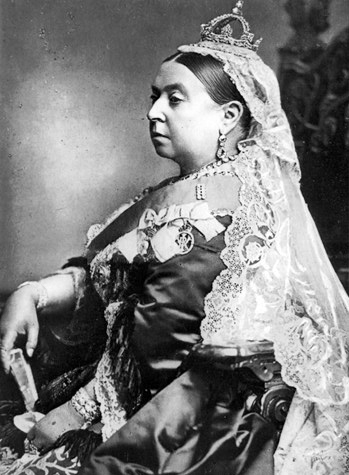Rebecca Fachner starts a series of articles on World War I by considering how close family ties between many European rulers may have contributed to the outbreak of war – like a family squabble on a grandiose scale.
This summer marks the 100th anniversary of the outbreak of World War I, and over the next few months there will be plenty of articles and books that deal with the assassination of Archduke Franz Ferdinand, the diplomatic machinations between the various countries after the Archduke’s death, and the outbreak of hostilities a few weeks later. One of the most interesting aspects of the beginning of the war is how most of the major powers seemed completely prepared for war, but stunned that war broke out so quickly. It is then, worth considering the political situation before the war to understand why the situation fell apart in the way it did, with the speed that it did.
Many people have compared World War I to a bar fight; there is even an internet graphic floating around that imagines the entire war as if the countries involved were drunks fighting at a bar rather than nations. If the war itself was a bar fight, the political situation leading up to the war is best characterized as a family squabble. Part of the reason that a comparison to a family makes sense is that the European political landscape at that time was in some ways like that of a large family. King George V of Great Britain was a grandson of Queen Victoria, first cousin of Kaiser Wilhelm of Germany through his father and the Kaiser’s mother. He was also first cousins with the Tsarina of Russia, Empress Alexandra, herself a granddaughter of Victoria. To make family dinners even more complicated, George was also a first cousin of Alexandra’s husband, Tsar Nicholas II of Russia; their mothers were sisters. His own sister was married to King Haakon of Norway, whose brother was King Christian X of Denmark, both of whom were cousins of both George and Nicholas. George and Wilhelm also had cousins in the royal houses of Greece, Romania and Spain. Confused yet? Well, almost every European royal family was related to almost every other European royal family, and untangling the branches of the family tree is a complicated endeavor, to say the least.
In an age when Europe was dominated by kingdoms and emperors, minor family disagreements became a huge problem. We all have family members that we don’t like too much for whatever reason, that’s the nature of families. But it is one thing if you don’t like your annoying cousin Nick or don’t trust cousin Bill, but when you all run countries, your dislike becomes both political and very important. Suddenly, the fact that you don’t trust your cousin has major policy implications for your government’s relationship with him and his government. This is not to suggest that pre-war alliances were purely based on family discord, or that the world lost millions of lives because of family drama. Two of the major players in the story were not linked to this large family: France because it no longer had a monarchy and Austria-Hungary because its rulers weren’t closely entwined in Queen Victoria’s royal circle. Since the war actually started between Serbia and Austria-Hungary, the non-family political situation was clearly very important too.
Why war broke out
As almost all histories tell us, World War I was the product of entangling alliances between the various powers, and their inability to stop the chain of events from overtaking them in the wake of the Archduke’s assassination. That is true; however, the crucial piece is not the entangling alliances, but the inability of each country in Europe to stop the train wreck as it was happening. The manifest weakness of many of the hereditary rulers of Europe was lethally exposed in 1914, along with their lack of diplomatic skills, their poor management style and general incompetence.
It is impossible to say whether better and more skilled (i.e. merit based) rulers would have been able to stave off a war, but it does seem clear that letting nations behave like a dysfunctional family is not the way to international harmony. Unfortunately it took an awful lot of lives to convince world leaders that international conferences shouldn’t look quite so much like a family reunion. One of the most enduring legacies of the war is that it ultimately toppled a number of the monarchies in Europe, perhaps because the conflict exposed the problems of hereditary rulers to such an extreme extent. Hereditary rule is like rolling the dice with your leadership, sometimes you roll a Peter the Great or Frederick the Great; at other times you roll a Nicholas II or Kaiser Wilhelm. Taking that kind of chance might have been a good idea at some point in history, but in an age of warfare on a massive scale and increasingly deadly weaponry, the major powers needed more skilled diplomats to manage international affairs, not to mention better military commanders.
Did you enjoy the article?
As always, your feedback is welcome. If you have the time to leave a comment below, we’d really like to hear what you thought about the article.
